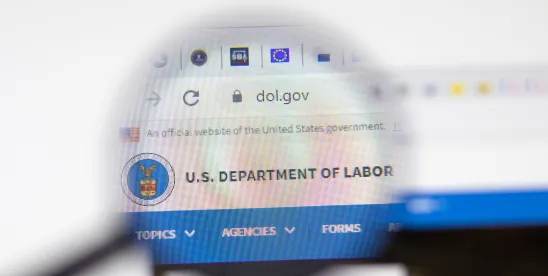Takeaways
- The Trump DOL has officially notified the Fifth Circuit that it intends to reconsider the 2024 final rule raising the FLSA salary level for “white collar” exemptions.
- It has asked for a litigation stay pending the agency’s further reconsideration of the rule.
- District courts had enjoined the 2024 final rule, but the Biden DOL appealed the case to the Fifth Circuit.
Article
Employers were granted a reprieve last fall when a federal court invalidated the U.S. Department of Labor’s (DOL’s) final rule increasing the minimum salary requirements for the “white collar” or “EAP” exemptions (executive, administrative, and professional) from the minimum wage and overtime pay requirements of the Fair Labor Standards Act (FLSA).
The DOL under the Biden Administration, however, appealed the decision to the U.S. Court of Appeals for the Fifth Circuit, leaving room for uncertainty whether the final rule might be resurrected. Recently, though, the DOL asked the appeals court to hold the case in abeyance as it reconsiders its next move.
Minimum Salary Rule
The 2024 minimum salary final rule took effect July 1, 2024. It sharply increased in two stages the salary threshold an employee must be paid for a white-collar exemption to apply. The first increase took effect July 1, raising the threshold from $684 per week ($35,568 per year) to $844 per week ($43,888 annually). The second, more substantial increase was slated to take effect Jan. 1, 2025. That would have boosted the salary floor from $844 per week ($43,888 per year) to $1,128 per week ($58,656 annually).
In a decision issued in one of several legal challenges, the U.S. District Court for the Eastern District of Texas found the DOL exceeded its statutory authority when it issued the rule. The court vacated the final rule in its entirety. State of Texas v. U.S. Department of Labor, 2024 U.S. Dist. LEXIS 207864 (E.D. Tex. Nov. 15, 2024).
Another Texas federal court, in a separate legal challenge, issued a cursory order adopting the reasoning of State of Texas v. DOL and awarding summary judgment to the plaintiffs. Flint Avenue LLC v. United States DOL, No. 5:24-cv-130 (N.D. Tex. Dec. 30, 2024).
With the 2024 final rule vacated, the prior minimum salary floor of $684 per week ($35,568 per year) was restored and currently applies.
DOL Appeals
The district court’s decisions striking down the rule did not end the matter, however. On Dec. 4, 2024, the DOL filed an appeal of the district court’s decision in the State of Texas case in the U.S. Court of Appeals for the Fifth Circuit. But it was uncertain whether the DOL would continue to pursue the appeal after President Donald Trump took office on Jan. 20, 2025.
Many anticipated the new administration would withdraw the appeal or choose not to defend the 2024 rule on appeal. Alternatively, the Trump Administration could maintain the appeal for the purpose of defending its rulemaking authority but later withdraw the 2024 rule and undertake new rulemaking. (This was the approach the first Trump Administration took after an Obama-era minimum salary rule was likewise invalidated.)
The DOL filed a motion on April 24, 2025, to hold the pending appeals in abeyance, noting the agency is reconsidering the rule. The court filing is the first clear indication that the DOL will not likely seek to resurrect the minimum salary rule in its current form.
Other Litigation
The DOL also is defending the rule in an ongoing suit brought in the District of Columbia federal court. Assoc. of Christian Schools Int’l v. United States DOL, No. 1:24-cv-2618. Cross-motions for summary judgment are pending. The DOL has not yet moved to stay litigation in that case.
The Fifth Circuit already has ruled that the DOL has statutory authority to issue a minimum salary rule — provided that the DOL does not set a salary threshold so high that it effectively negates the duties test of exempt status, which appears in the text of the FLSA. Mayfield and R.U.M. Enterprises, Inc. v. United States DOL, 2024 U.S. App. LEXIS 23145 (Sept. 11, 2024). (See Fifth Circuit Holds DOL Can Set Salary Floor for White-Collar Exemptions.) That was the problem with the 2024 rule, the district court in State of Texas held.
In Mayfield, the plaintiffs were challenging the minimum salary requirement in effect prior to the 2024 final rule and, with the 2024 rule vacated, the current operative threshold. On Feb. 14, 2025, the Fifth Circuit denied the Mayfield plaintiffs’ petition for rehearing en banc. On Feb. 20, 2025, the Mayfield plaintiffs notified the appeals court that they intend to file a petition for certiorari with the U.S. Supreme Court.





 />i
/>i

